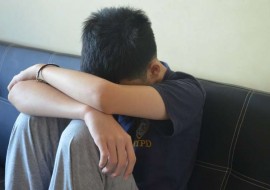
Major Depression May Be Triggered by Teenage Stressors
A recent study using mice to mimic stress and depression in adolescents suggests that the teenage years are a particularly vulnerable time for the brain. Working with mice who carried an introduced human gene mutation for depression, the researchers exposed some of the adolescent mice to social stress (isolation for three weeks) and kept a control group of mice stress-free. There were two important findings. First, the gene mutation for depression had no effect on mouse behavior except among the stressed mice. Second, they found that the behavior change may be mediated by increases in cortisol (a stress hormone) and decreases in dopamine (a neurotransmitter in the brain). Morever, after they returned the stressed mice to their preferred social environment, the behavioral abnormalities remained. This study, and others like it, suggest that once activated during adolescence, the neuro-biological pathway active in depression does not turn off, even after the stressor has passed.
The take-home message? We have another reason to increase our efforts at promoting healthy family environments for our children, and another reason that insurance companies should stop refusing to pay for marriage counseling. A loving and secure attachment between married partners is the foundation for well-adjusted and resilient children. …and possibly a buffer against a life suffering with depression.
Check out a more detailed summary of the study: http://www.hopkinsmedicine.org/news/publications/psychiatry_newsletter/hopkins_brainwise_spring_2013/stress_can_it_bring_more_than_teen_angst
or the study itself: http://www.sciencemag.org/content/339/6117/335.long
Share this post




